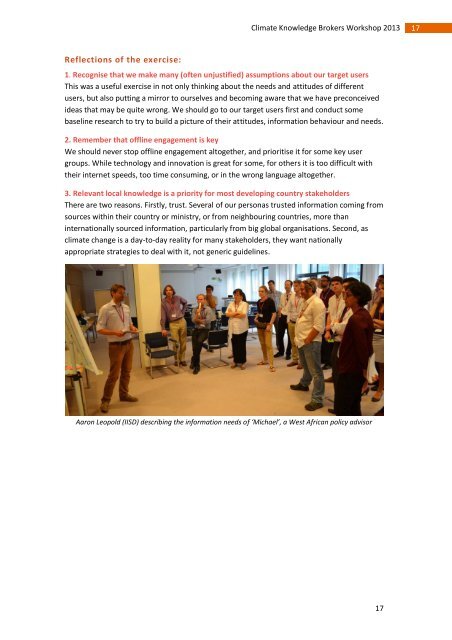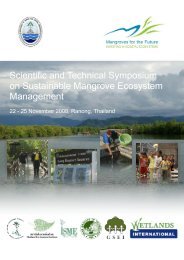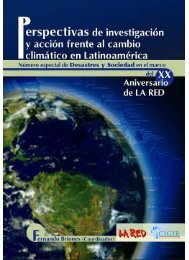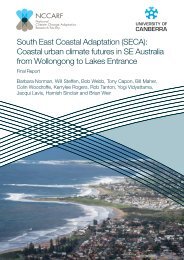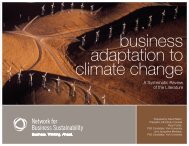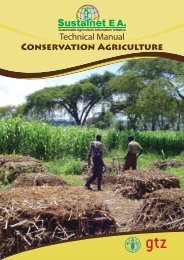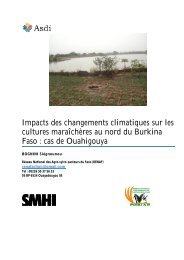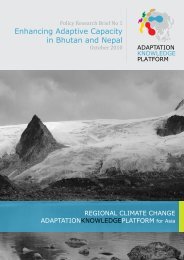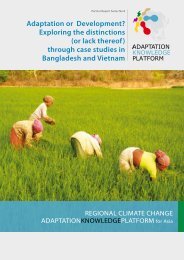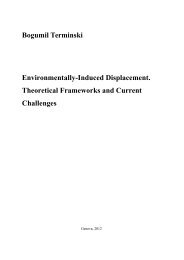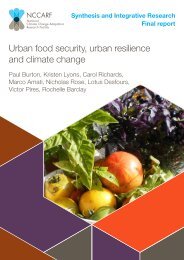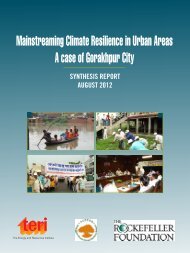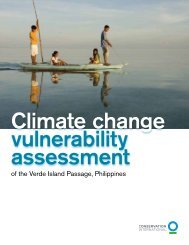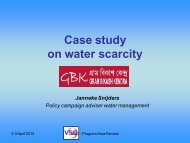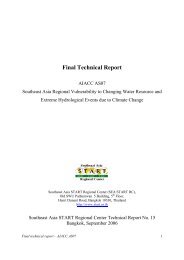You also want an ePaper? Increase the reach of your titles
YUMPU automatically turns print PDFs into web optimized ePapers that Google loves.
Climate Knowledge Brokers <strong>Workshop</strong> 2013<br />
17<br />
Reflections of the exercise:<br />
1. Recognise that we make many (often unjustified) assumptions about our target users<br />
This was a useful exercise in not only thinking about the needs and attitudes of different<br />
users, but also putting a mirror to ourselves and becoming aware that we have preconceived<br />
ideas that may be quite wrong. We should go to our target users first and conduct some<br />
baseline research to try to build a picture of their attitudes, information behaviour and needs.<br />
2. Remember that offline engagement is key<br />
We should never stop offline engagement altogether, and prioritise it for some key user<br />
groups. While technology and innovation is great for some, for others it is too difficult with<br />
their internet speeds, too time consuming, or in the wrong language altogether.<br />
3. Relevant local knowledge is a priority for most developing country stakeholders<br />
There are two reasons. Firstly, trust. Several of our personas trusted information coming from<br />
sources within their country or ministry, or from neighbouring countries, more than<br />
internationally sourced information, particularly from big global organisations. Second, as<br />
climate change is a day-to-day reality for many stakeholders, they want nationally<br />
appropriate strategies to deal with it, not generic guidelines.<br />
Aaron Leopold (IISD) describing the information needs of ‘Michael’, a West African policy advisor<br />
17


